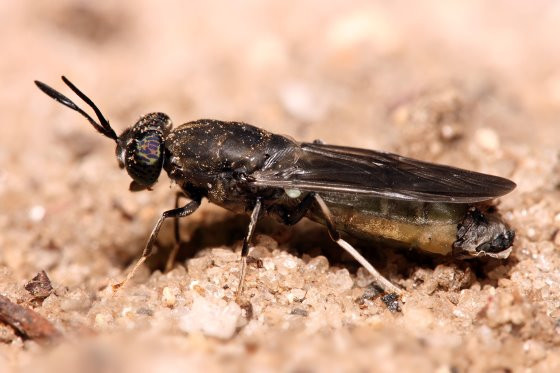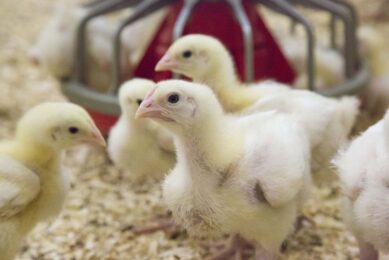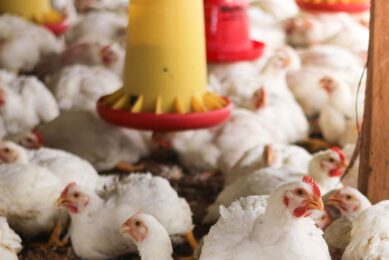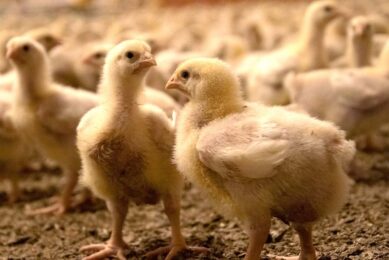US: Black soldier fly larvae for poultry gets green light

Plans to feed poultry dried black soldier fly larvae in the United States have received a boost following a decision by the US Food and Drug Administration (FDA) recommending its use in diets.
The approval of BSFL for use in poultry feed expands the potential for this ingredient as a more sustainable source of protein.
Research conducted by EnviroFlight on broiler chickens with Dr Kimberly Livingston, assistant professor in nutrition, immunology and physiology at North Caroline State University and on laying hens with Professor Paul Patterson, professor of poultry science at Penn State University, supports the value of these ingredients in feed for poultry species.
Dr Patterson argued that BSFL ingredients (meal, oil and whole larvae) provided an exciting nutrient option for laying hens with significant amounts of energy, protein, essential amino acids, fatty acids and minerals that supported the hens’ body weight, egg production and quality.
Dr Liz Koutsos, president of EnviroFlight, said she was thrilled to be the first US commercial producer of BSFL and to bring the company’s products to the animal feed and pet food industries.
“Global need for sustainable protein continues to grow as the world population is expected to increase to over 9 billion people by 2050 and we are proud to be part of the solution to this challenge,” she added.
Up to 3,200 tonnes/year of dried BSFL is expected to be produced at the company’s plant at Maysville, Kentucky.
The decision comes just days after a study was published showing the efficiency of BSF and bacteria for producing larvae as a feedstuff and fertiliser, which could not only reduce chicken manure but also generate large amounts of feed proteins.
The international team of researchers from the US, Netherlands, Italy and China found that BSFL conversion rate and chicken manure reduction rate were improved by BSFL and B. subtilis BSF-CL co-conversion, in a study published in the Journal of Environmental Management.
Join 31,000+ subscribers
Subscribe to our newsletter to stay updated about all the need-to-know content in the poultry sector, three times a week. Beheer
Beheer








 WP Admin
WP Admin  Bewerk bericht
Bewerk bericht